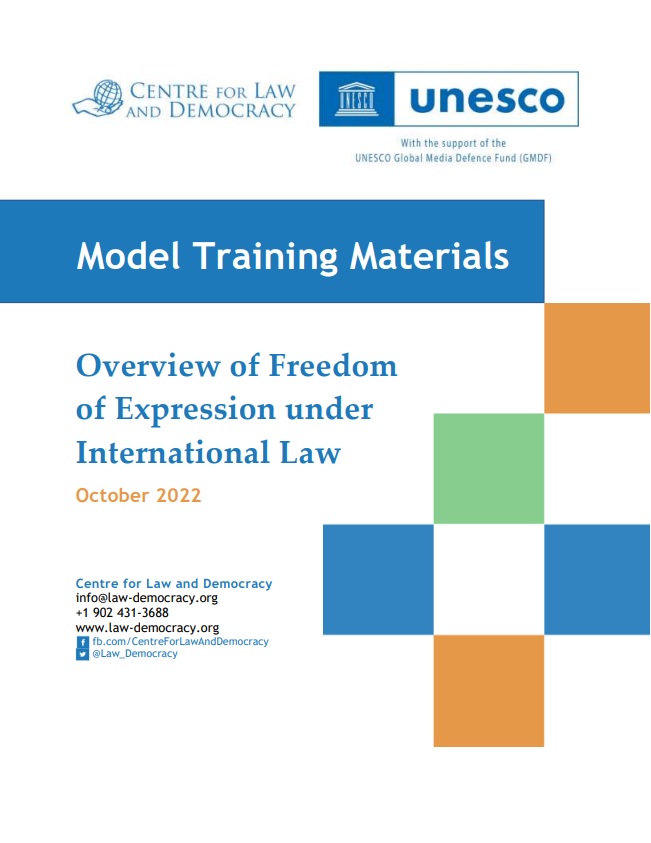6 October 2022
The Centre for Law and Democracy (CLD) is today releasing a new document, Model Training Materials: Overview of Freedom of Expression under International Law.
These training materials are designed as a resource for networks of media lawyers and other organisations which are working to build the capacity of lawyers to use international human rights standards, especially at the domestic level. The target audience includes both lawyers who are new to the field of media law and lawyers who, even if they are experts on national media law, are interested in learning more about international human rights standards.“Lawyers can refer to these standards when campaigning for law reform, engaging in strategic litigation, or providing technical expertise on new laws or regulations. Even where human rights law is not directly legally binding, it can provide helpful guidance on challenging or ambiguous areas of media law.”These training materials are designed to help lawyers better integrate international human rights law into their work,
Toby Mendel, CLD’s Executive Director
The Materials consist of: 1) a Background Reading document describing in some detail the core standards; 2) sample exercises that can be used as part of training programmes; 3) discussion questions, again for training; and 4) sample agendas for a 1.5 hour or one-half-day workshop based on the materials.
This set of Model Training Materials is part of CLD’s Promoting the Establishment of Networks of Media Lawyers Globally project, currently in its second phase. This work is funded by the Global Media Defence Fund managed by UNESCO. The project provides resources and support to lawyers seeking to establish national level media lawyers’ networks. To learn more, see our Brochure describing the project and our Media Lawyers’ Networks project information page.
The Model Training Materials are available at Model Training Materials: Overview of Freedom of Expression under International Law.
Permanent link: http://en.unesco.kz/model-training-materials-introduction-to-freedom-of-expression
